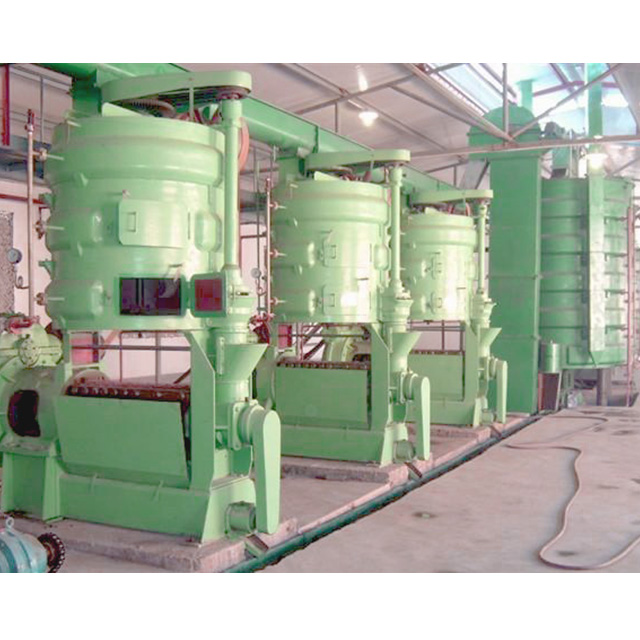Starting a sunflower oil manufacturing business involves several key steps. Here’s a general outline to help you get started:
- Market Research: Begin by conducting thorough market research to understand the demand for sunflower oil in your target market. Identify potential competitors, analyze their pricing, and understand consumer preferences.
- Procurement of Raw Materials: Source high-quality sunflower seeds from reliable suppliers. The quality of the raw materials will directly impact the quality of your final product.
- Processing Equipment: Invest in appropriate processing equipment, such as cleaning machines, drying units, crushing machines, presses, and filtering systems. Ensure that the equipment meets safety and hygiene standards.
- Facility Setup: Set up a production facility that is well-ventilated, clean, and organized. This facility should have appropriate storage areas for raw materials, finished products, and packaging materials.
- Production Process: Develop a production process that efficiently converts sunflower seeds into oil. This typically involves cleaning the seeds, drying them, crushing them, pressing them to extract the oil, and then filtering and refining the oil to remove impurities.
- Packaging and Labeling: Invest in packaging materials that are both functional and appealing. Design labels that clearly communicate the product’s key features, such as its purity, taste, and usage instructions.
- Marketing and Distribution: Create a marketing strategy to promote your sunflower oil. Utilize digital marketing channels, such as social media and online advertising, as well as traditional methods like print advertising and partnerships with local retailers. Establish distribution channels to get your product to market, whether it’s through direct sales, wholesale, or retail partnerships.
- Compliance with Regulations: Ensure that your business follows all relevant laws, regulations, and safety standards related to food production and distribution. This may include obtaining necessary licenses and certifications, as well as maintaining hygiene and safety practices within your production facility.
Remember that starting a sunflower oil manufacturing business requires careful planning, dedication, and a commitment to quality. It’s also important to stay updated on market trends and innovations in the industry to ensure your business remains competitive.

Sunflower Oil
Sunflower oil, also known as sunflower seed oil, is an edible oil extracted from sunflower seed kernels. The oil content of sunflower seed kernels is between 20% and 40%. This oil is rich in unsaturated fatty acids, with the ratio of oleic acid and linoleic acid being approximately 1:3.5. Unsaturated fatty acids account for 85% of its total content, giving sunflower oil good nutritional value. Refined sunflower oil is generally light yellow in color and has a unique smell, which can be removed by deodorization treatment. In addition, sunflower oil is also rich in vitamin E and chlorogenic acid. The latter can generate caffeic acid with antioxidant effects after hydrolysis, so it has good stability.
In the field of cosmetics, sunflower oil is also widely used. It has good permeability and rapid spreading, and is extremely high in vitamins and minerals, which can accelerate the treatment of skin damage and eczema, while giving the product a refreshing moisturizing effect. Sunflower oil can be used as a base oil in products such as creams, lotions, makeup, shampoos and conditioners.
The manufacturing process of sunflower oil involves multiple steps such as cleaning and selecting sunflower seeds, removing impurities, pressing the oil from the seeds and refining the oil to meet market standards. Every step is critical to ensure the high quality and purity of the final product.
Overall, sunflower oil is not only a high-quality cooking oil, but also has a wide range of applications in cosmetics and personal care products. Its rich nutritional value and good stability give it high demand and broad application prospects in the market.

small scale sunflower oil production line process
A small sunflower oil production line is usually a relatively compact and efficient production system designed for small-scale production of sunflower oil. This production line usually includes the following key steps and components:
Raw material preparation: First, high-quality sunflower seeds need to be purchased and initially cleaned and screened to remove impurities and bad seeds.
Crushing and pressing: Next, the seeds are crushed through a crusher to better release the oils. The crushed seeds are then pressed through a press, which extracts most of the oil.
Oil-water separation: The pressed oil will contain a certain amount of moisture and impurities, so it needs to be separated by an oil-water separator to ensure the purity of the oil.
Refining and Filtration: To further improve the quality of the oil, refining and filtration are often performed. This step removes residual impurities, odor and color from the oil, making the oil clearer and purer.
Packaging and storage: The refined and filtered sunflower oil will be packaged, usually using food-grade packaging materials to ensure the hygiene and safety of the oil. The packaged oil is stored awaiting sale or shipment.
Quality Control: Throughout the entire production process, quality control is crucial. It is necessary to regularly test various indicators of oil products, such as acid value, peroxide value, color, etc., to ensure that the product meets relevant standards and requirements.
For small-scale sunflower oil production lines, equipment selection and configuration are key. It is necessary to select appropriate equipment based on production scale, raw material characteristics, market demand and other factors, and ensure smooth connection between equipment to improve production efficiency and quality. In addition, the layout and operating procedures of the production line also need to be properly planned to ensure the smooth progress of the production process.
It should be noted that although the investment in a small-scale sunflower oil production line is relatively small, it also requires certain technology and experience to ensure smooth production. Therefore, before starting production, it is recommended to conduct adequate market research and technical preparation to ensure the successful implementation of the project.

large scale sunflower oil production line
The large-scale sunflower oil production line is an efficient and automated system for large-scale production of sunflower oil. Compared with small production lines, large production lines have significant improvements in equipment scale, production capacity, degree of automation, and economic benefits.
First, the large-scale production line uses advanced equipment and technology to handle large quantities of sunflower seeds, thereby significantly improving production efficiency. These equipment usually have a high degree of automation, which can reduce manual operation costs, reduce human errors, and ensure the stability and continuity of the production process.
Secondly, large production lines also have higher standards in quality control. Through strict production process control and quality testing, we can ensure that the sunflower oil produced has stable quality and taste. In addition, large-scale production lines also have stronger research and development capabilities and can innovate and optimize products according to market demand and consumer preferences.
In terms of economic benefits, due to their larger scale, large-scale production lines can reduce the cost of unit products, increase output and market share, and thus obtain more economic benefits. At the same time, large-scale production lines can also achieve automated and intelligent production, further improving production efficiency and reducing labor costs.
However, large-scale sunflower oil production lines also have certain challenges and risks. For example, equipment investment and maintenance costs are high, requiring strong financial strength and technical support. In addition, market competition is fierce, and it is necessary to constantly pay attention to market dynamics and consumer needs to formulate effective market strategies.
In general, large-scale sunflower oil production lines have the advantages of high efficiency, automation, stable quality and high economic benefits, but they also require sufficient preparation and planning in terms of equipment investment, quality control and market strategies.

